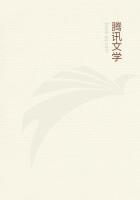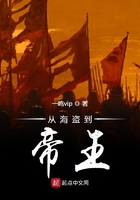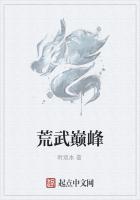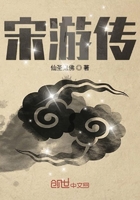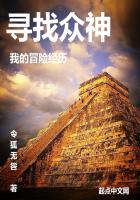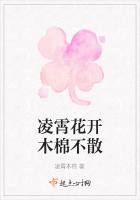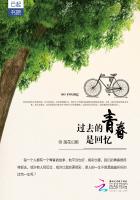What is true of individuals has been true of races. The most imaginative races have proved the greatest factors in the world's advance.
Now after this look at our own side of the world, let us turn to the other; for it is this very psychological fact that mental progression implies an ever-increasing individualization, and that imagination is the force at work in the process which Far Eastern civilization, taken in connection with our own, reveals. In doing this, it explains incidentally its own seeming anomalies, the most unaccountable of which, apparently, is its existence.
We have seen how impressively impersonal the Far East is. Now if individuality be the natural measure of the height of civilization which a nation has reached, impersonality should betoken a relatively laggard position in the race. We ought, therefore, to find among these people certain other characteristics corroborative of a less advanced state of development. In the first place, if imagination be the impulse of which increase in individuality is the resulting motion, that quality should be at a minimum there.
The Far Orientals ought to be a particularly unimaginative set of people. Such is precisely what they are. Their lack of imagination is a well-recognized fact. All who have been brought in contact with them have observed it, merchants as strikingly as students.
Indeed, the slightest intercourse with them could not fail to make it evident. Their matter-of-fact way of looking at things is truly distressing, coming as it does from so artistic a people.
One notices it all the more for the shock. To get a prosaic answer from a man whose appearance and surroundings betoken better things is not calculated to dull that answer's effect. Aston, in a pamphlet on the Altaic tongues, cites an instance which is so much to the point that I venture to repeat it here. He was a true Chinaman, he says, who, when his English master asked him what he thought of "That orbed maiden With white fires laden Whom mortals call the moon," replied, "My thinkee all same lamp pidgin" (pidgin meaning thing in the mongrel speech, Chinese in form and English in diction, which goes by the name of pidgin English).
Their own tongues show the same prosaic character, picturesque as they appear to us at first sight. That effect is due simply to the novelty to us of their expressions. To talk of a pass as an "up-down" has a refreshing turn to our unused ear, but it is a much more descriptive than imaginative figure of speech. Nor is the phrase "the being (so) is difficult," in place of "thank you," a surprisingly beautiful bit of imagery, delightful as it sounds for a change. Our own tongue has, in its daily vocabulary, far more suggestive expressions, only familiarity has rendered us callous to their use. We employ at every instant words which, could we but stop to think of them, would strike us as poetic in the ideas they call up. As has been well said, they were once happy thoughts of some bright particular genius bequeathed to posterity without so much as an accompanying name, and which proved so popular that they soon became but symbols themselves.
Their languages are paralleled by their whole life. A lack of any fanciful ideas is one of the most salient traits of all Far Eastern races, if indeed a sad dearth of anything can properly be spoken of as salient. Indirectly their want of imagination betrays itself in their every-day sayings and doings, and more directly in every branch of thought. Originality is not their strong point. Their utter ignorance of science shows this, and paradoxical as it may seem, their art, in spite of its merit and its universality, does the same. That art and imagination are necessarily bound together receives no very forcible confirmation from a land where, nationally speaking, at any rate, the first is easily first and the last easily last, as nations go. It is to quite another quality that their artistic excellence must be ascribed. That the Chinese and later the Japanese have accomplished results at which the rest of the world will yet live to marvel, is due to their--taste. But taste or delicacy of perception has absolutely nothing to do with imagination. That certain of the senses of Far Orientals are wonderfully keen, as also those parts of the brain that directly respond to them, is beyond question; but such sensitiveness does not in the least involve the less earth-tied portions of the intellect.
A peculiar responsiveness to natural beauty, a sort of mental agreement with its earthly environment, is a marked feature of the Japanese mind. But appreciation, however intimate, is a very different thing from originality. The one is commonly the handmaid of the other, but the other by no means always accompanies the one.
So much for the cause; now for the effect which we might expect to find if our diagnosis be correct.
If the evolving force be less active in one race than in another, three relative results should follow. In the first place, the race in question will at any given moment be less advanced than its fellow; secondly, its rate of progress will be less rapid; and lastly, its individual members will all be nearer together, just as a stream, in falling from a cliff, starts one compact mass, then gradually increasing in speed, divides into drops, which, growing finer and finer and farther and farther apart, descend at last as spray. All three of these consequences are visible in the career of the Far Eastern peoples. The first result scarcely needs to be proved to us, who are only too ready to believe it without proof.
It is, nevertheless, a fact. Viewed unprejudicedly, their civilization is not so advanced a one as our own. Although they are certainly our superiors in some very desirable particulars, their whole scheme is distinctly more aboriginal fundamentally.
It is more finished, as far as it goes, but it does not go so far.

